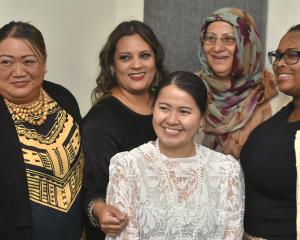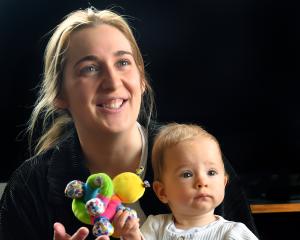The Dunedin medical laboratory scientist gave plasma for the 50th time, and decided to meet the person his "liquid gold" goes to.
"It’s actually painless to me," Mr Taylor said about the process of giving plasma, which he began doing during the Covid-19 pandemic.
"I don’t feel anything when I’m actually doing a donation ... because doing plasma, I’m not actually losing any of my cells.
"So as far as energy levels and things like that, I’m actually pretty good. So it’s actually a very easy thing to do."
He was aware he was donating his plasma to Naseby publican Adrian Hood, who is receiving treatment for non-Hodgkin’s lymphoma and needed plasma products, but yesterday was the first time the pair had met.
"It’s just been awesome that there are people out there like Terry — the treatment, the energy that these people put out on a day-by-day basis, it’s just phenomenal. I mean, it’s a real gift."
Mr Hood said his visits to Dunedin and occasionally Christchurch for treatment had become increasingly frequent.

"I’m 62, and just as I thought my life was winding down, it started to wind up.
"I’m still getting my head around my new itinerary. It’s obviously been a shock for my family and everyone."
Mr Taylor said he knew of the benefits of giving plasma, but actually seeing who it benefited made yesterday immensely satisfying.
"I think that’s a really important aspect. We often forget about the other side of healthcare."
New Zealand Blood Service haematologist Annette Neylon said there was an increasing need for donations — about 5000 per week in New Zealand across whole blood and plasma.
"I think it’s a lot easier than some people expect. Come along, we need at least 4000 new donors in the coming years — about 20% of our donors are over the age of 65.
"So we need to make sure that the younger generation are also becoming blood donors as we go forward as well."












